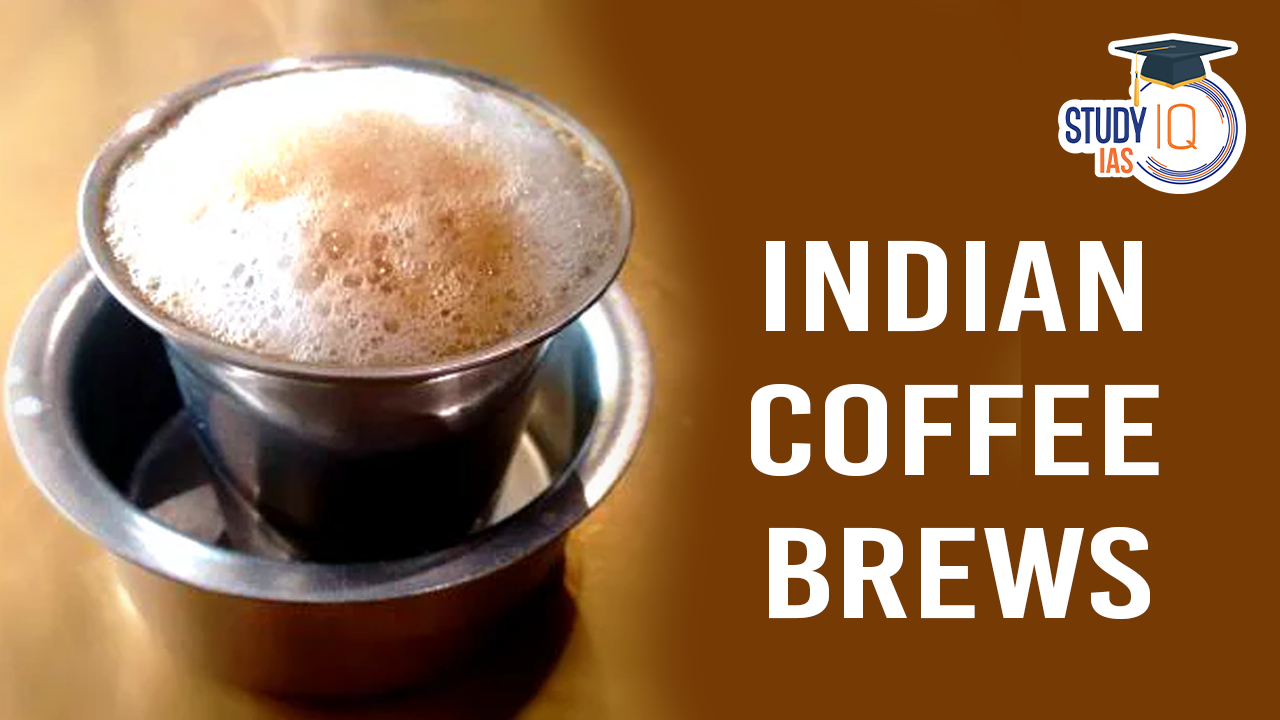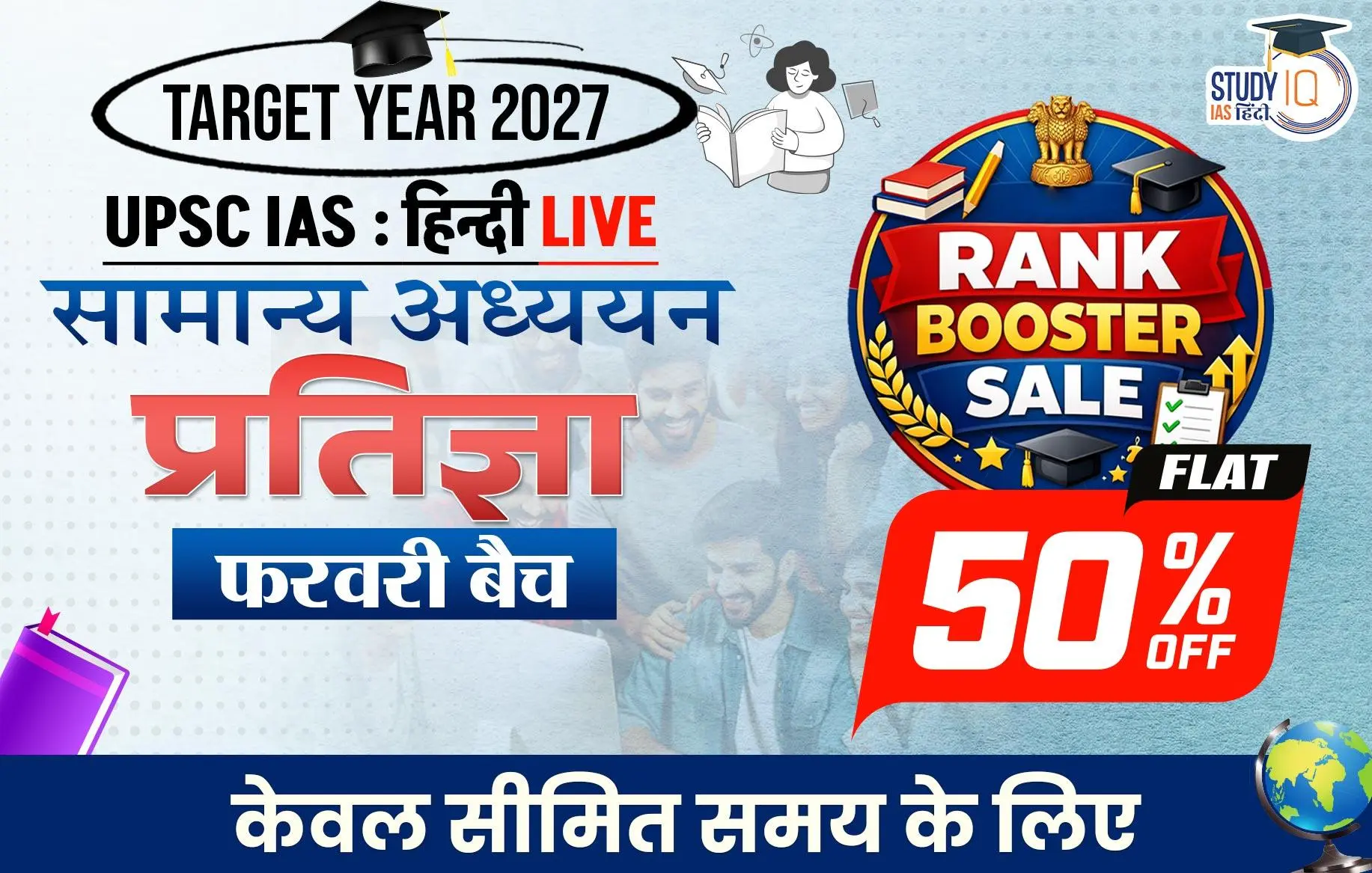Table of Contents
Context
India’s coffee exports reached $1.29 billion in FY 2023-24, almost double the $719.42 million in 2020-21.
About Coffee
- Coffee cultivation in India began in the 1600s when Baba Budan, a legendary saint, brought seven Mocha seeds to Karnataka’s Baba Budan Giri hills.
- Climatic Conditions for Coffee Cultivation:
- Temperature: Ideal range is 15°C to 28°C.
- Rainfall: Requires 150-250 cm of annual rainfall.
- Soil: Grows best in well-drained, loamy soil rich in humus and minerals like iron and calcium.
- Coffee Production:
- India is the 7th largest coffee producer globally.
- Top Coffee producers worldwide: (1) Brazil (2) Vietnam (3) Columbia
- Approximately three-fourths of India’s coffee production consists of Arabica and Robusta
- Italy is India’s largest export market for coffee.
- Success Story: Araku Valley (Andhra Pradesh):
- Nearly 150,000 tribal families in collaboration with the Coffee Board and the Integrated Tribal Development Agency (ITDA) have increased coffee production by 20%.
India’s Coffee Production
- Global Standing:
India is the 7th largest coffee producer globally, contributing about 3% to worldwide coffee production. - Major Coffee Varieties:
Indian coffee primarily consists of two varieties:- Arabica: Known for its mild flavor and high acidity, it is preferred in specialty coffee markets.
- Robusta: A stronger, disease-resistant variety with a high caffeine content, popular for instant coffee.
Approximately three-fourths of India’s coffee production is dedicated to these two varieties.
- Export Market:
- Italy is India’s largest coffee export destination, followed by Germany, Belgium, and Russia.
- Indian coffee is highly sought after for its unique flavor profile, resulting from the shade-grown cultivation method.
- Leading States for Coffee Cultivation:
- Karnataka: Accounts for nearly 70% of India’s coffee production, particularly in Chikmagalur, Kodagu, and Hassan districts.
- Kerala: Contributes around 20%, with coffee farms in Wayanad, Idukki, and Malappuram.
- Tamil Nadu: Produces 5-6%, mainly in the Nilgiris and Yercaud hills.
Challenges in India’s Coffee Industry
- Climate Change:
Rising temperatures, erratic rainfall, and the increased frequency of pests like white stem borers threaten coffee yields. - High Production Costs:
Small and medium coffee growers often struggle with rising input costs, limited mechanization, and fluctuating coffee prices. - Global Competition:
India faces stiff competition from top coffee-producing nations like Brazil and Vietnam, which benefit from larger-scale operations and lower production costs. - Infrastructure and Marketing Gaps:
Despite high-quality production, Indian coffee lacks adequate marketing and branding on global platforms.
Future Prospects and Government Initiatives
- Promotion of Specialty Coffee:
Focus on promoting India’s specialty coffees, such as Monsooned Malabar and organic Araku coffee, in niche markets. - Support for Small Farmers:
The government provides subsidies for coffee replantation, irrigation facilities, and research on pest-resistant varieties. - Expanding Export Markets:
Efforts are underway to explore newer markets in Asia and the Middle East, enhancing India’s export potential. - Sustainable Practices:
Promoting eco-friendly farming techniques to mitigate the impact of climate change and enhance soil health.
Coffee Board of India |
| o It is a statutory organisation under Section (4) of the Coffee Act, 1942. (HQ – Bangalore, KN)
o It functions under the administrative control of the Ministry of Commerce and Industry, Government of India. o Coffee Board serves as the friend, philosopher and guide to the Coffee sector covering the entire value chain. |


 Important Reports and Indices in News (2...
Important Reports and Indices in News (2...
 Supreme Court to Examine Scope of 'Right...
Supreme Court to Examine Scope of 'Right...
 Why Iran Matters More Than Venezuela: En...
Why Iran Matters More Than Venezuela: En...

























